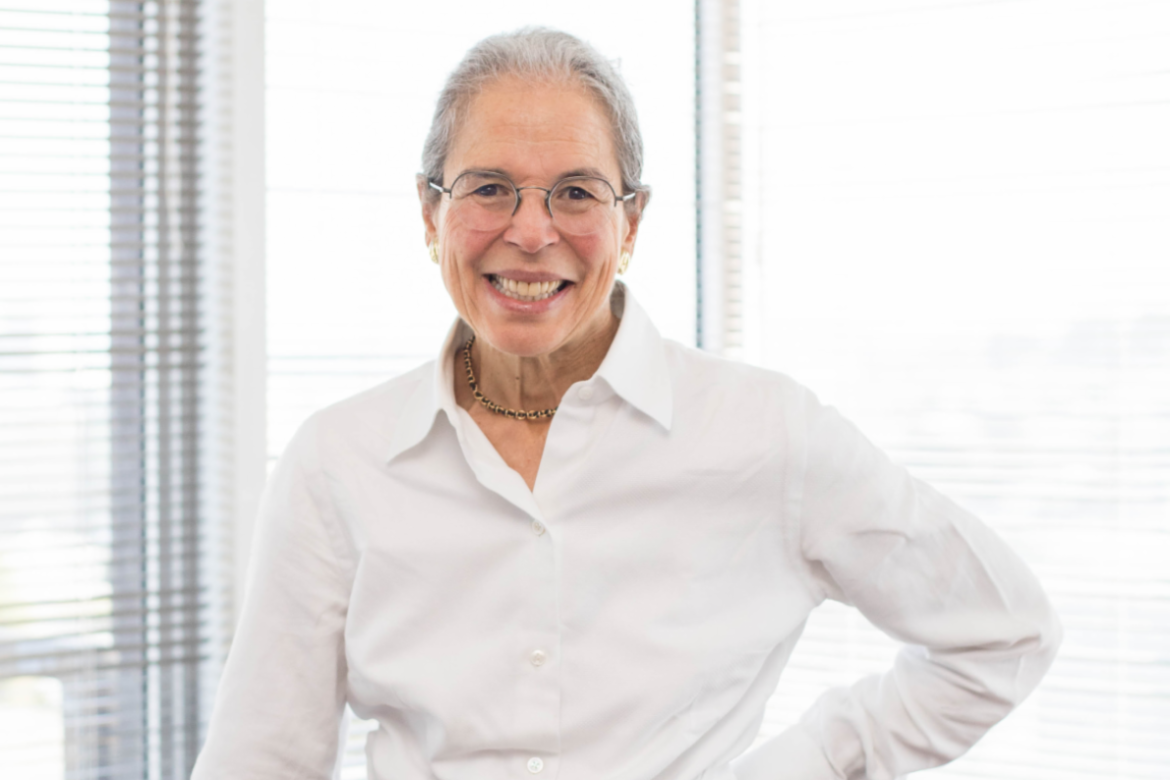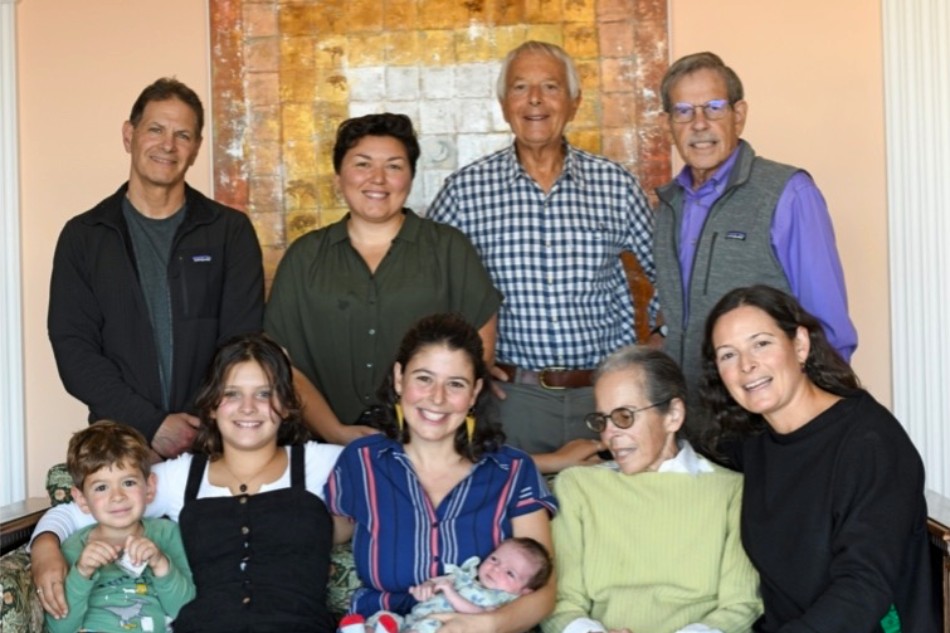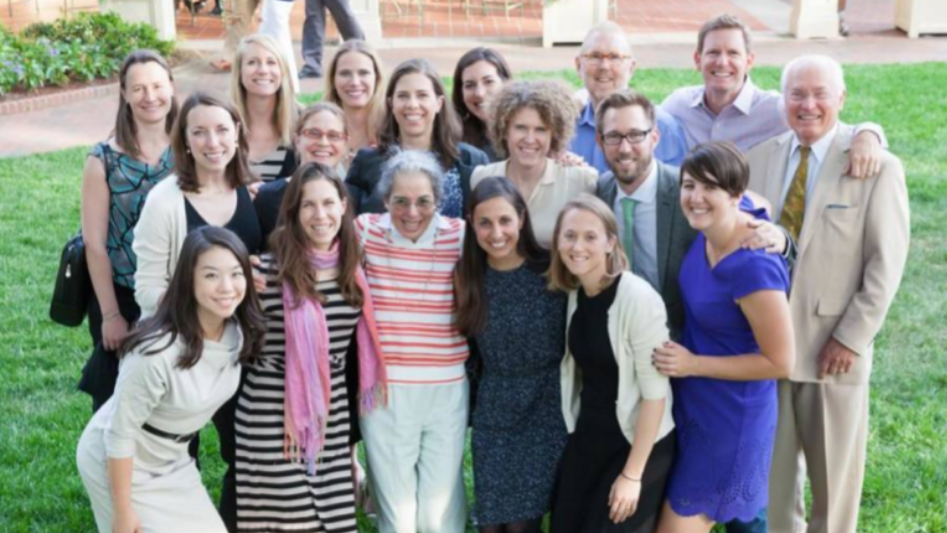
Nancy E. Adler, PhD, the visionary who co-authored the foundational textbook of health psychology in 1979 and dedicated her life to understanding the profound link between social factors and health, died peacefully at her home on January 4, 2024, at the age of 77. Her death marks the passing of a giant in the field of public health, a tireless advocate for social justice, and a mentor who shaped generations of researchers.
A life well lived
Nancy was born in New York, NY. Her father, Alan, was a clothing manufacturer and regional salesman, and her mother, Pauline, was a teacher and stay-at-home mom.
After completing her undergraduate studies at Wellesley College, she entered the PhD Program in Social Relations at Harvard University and was mentored by Herbert Kelman, an expert on social influence and cognitive dissonance. For her 1974 PhD thesis titled "Reactions of Women to Therapeutic Abortion: A Social Psychological Analysis”, Nancy interviewed women before and after having an abortion. She found that women's reactions were generally positive and reflective of healthy coping strategies. Nancy taught at the University of California, Santa Cruz prior to joining the faculty at UCSF in 1977.

Nancy E. Adler, PhD (front row, in green) and her family
Nancy is survived by her husband of 48 years, Arnold Milstein, two daughters, Julia Adler-Milstein, PhD, and Sarah Adler-Milstein, and brother, Richard Adler.
“She was such a devoted mother that neither of her daughters had any idea of her star-powered scientific career until we were well into our teenage years,” said Dr. Adler-Milstein. “She was always on the sidelines of our sports, available for homework help (and she was an ace editor as well as insanely patient), and up for an adventure. Her hobbies and passions were really about spending quality time with family and friends.”
Please click here for a list of organizations to support in Nancy’s honor. Plans for a celebration of life will be posted to the same site at a later date.
A pioneering mind
Nancy’s career was marked by a relentless pursuit of understanding how social systems and individual health intertwine. Her pioneering work on income inequality, stress, and cardiovascular disease challenged the notion of health as solely a matter of individual choices and genetics. She coined the term "psychosocial pathways" to describe the mechanisms by which social factors like discrimination and lack of resources get under the skin to affect our physical well-being.
"Nancy Adler is one of the most impactful psychological researchers of our era," said Elissa Epel, PhD, professor and vice chair for adult psychology in the Department of Psychiatry and Behavioral Sciences and co-director of the UCSF Center for Health and Community (CHC), where Nancy had established her influential research home. "She was my mentor for almost 30 years, and I would not be here, or doing the type of interdisciplinary cell-to-society research I am doing, if it were not for her. Her impact is unending."
One of Nancy’s most enduring contributions is the MacArthur "Ladder," a simple scale that measures an individual's subjective sense of social status. This one-to-ten ranking, born out of a MacArthur Foundation working group, has become a powerful tool in public health research, revealing a strong correlation between low social status and increased disease risk. It goes beyond social stress and resources to capture the psychological mindset associated with socioeconomic disadvantage.

Nancy Adler, PhD, (left) accepts the 2014 Lloyd Holly Smith Award for Exceptional Service to the School of Medicine alongside colleague Anne Poirier.
Nancy’s achievements are vast. She authored more than 400 articles, many of which became cornerstones of public health research. In 2022, she was noted as one of the most impactful researchers globally, based on citation impact. She founded the CHC at UCSF, a hub for interdisciplinary research on social determinants of health. She held prestigious positions at organizations like the MacArthur Foundation and the National Institutes of Health. And throughout her career, she passionately mentored the next generation of public health leaders. Her outstanding contributions have been recognized with numerous awards, including the Chancellor’s Award for the Advancement of Women in 1995, the Lifetime Achievement in Mentoring Award in 2009, the Holly Smith Award for Exceptional Service to the UCSF School of Medicine in 2014, the Faculty Research Lecturer in Clinical Sciences in 2015, and the J. Michael McGinnis Leadership Excellence Award in 2020.
As director of the MacArthur Foundation Research Network on Socioeconomic Status and Health for 15 years, Nancy influenced the NIH agenda, for example, by organizing a scientific meeting at the NIH attended by more than 400 researchers and NIH staff. The MacArthur Network contributed fundamental concepts and approaches to studying the mechanisms responsible for health disparities. She was a member of both the American Academy of Arts and Science and the National Academy of Medicine, and was selected for major leadership roles in the latter.
But beyond her accolades, Nancy will be remembered for her unwavering commitment to social justice. She was a fierce advocate for marginalized communities, using her platform to speak truth to power and dismantle inequities in healthcare.
“Nancy was a pioneer in interdisciplinary research exploring some of society’s most pressing health challenges. Passionate about improving the lives of children and families, she understood that the emotional, environmental, cultural, and social needs of an individual and a family have a significant impact on human health and health care systems,” said Lisa Stone Pritzker, founder and chair of the LSP Family Foundation. “Nancy will be remembered for her tremendous body of work and extraordinary contributions to science and humanity globally. She was gifted at assembling talented people from different disciplines and engaging them in ground-breaking research. She had a profound impact on the hearts and minds of so many.”
Nancy was renowned for her humility and deep sense of gratitude. At her retirement party, surrounded by colleagues recounting her countless achievements, she simply remarked, "Each one of you changed and enriched my life." This unwavering humility and compassion were hallmarks of her character, further solidifying her place as a revered leader, mentor, and friend.
An enduring legacy
Nancy’s profound legacy lives on within the UCSF Department of Psychiatry and Behavioral Sciences, the CHC, and in each faculty member, scholar, and colleague who knew her, learned from her, and aspires to follow in her trailblazing footsteps. To continue her legacy, the CHC recently created the Nancy Adler Endowed Lectureship Award to highlight the most impactful and innovative work in promoting health equity.
“A gifted scientist and a generous, warm mentor, Nancy Adler was unwavering in her commitment to her multiple colleagues and trainees throughout the globe,” said Claire D. Brindis, DrPH, Distinguished Professor Emerita of Pediatrics and Health Policy at UCSF. “Nancy will remain a beacon, illuminating the path for all who pursue her aspirational and inspirational vision for health equity. As a colleague, mentor, and close friend, I will always treasure her in my heart.”

Nancy E. Adler, PhD (front, center), surrounded by faculty, staff, and trainee colleagues
During her 45 years of research and service committed to the social, behavioral and policy sciences, Nancy made countless contributions to UCSF and the greater community during her career years in multiple leadership roles, serving as a distinguished Lisa and John Pritzker Professor and Vice Chair of Psychology in the Departments of Psychiatry & Behavioral Sciences and Pediatrics at UCSF. She is the founder of the UCSF CHC and served as its director for 24 years. At its birth, the CHC provided a nexus point for bringing outstanding social and behavioral scientists from across the campus to create a supportive community which supported each of them in conducting what at the time was considered marginalized scholarship.
Through Nancy’s leadership, this supported community became the nucleus for the integration of social and behavioral sciences in a broader array of research being embraced not only at UCSF, but nationally and internationally. The CHC is also home to the National Program Office of the Robert Wood Johnson Foundation's Evidence for Action Program, which supports research on population health and health equity policies and programs.
"Nancy will continue to be the CHC's North Star,” said Aric Prather, PhD, co-director of the CHC. “Her commitment to scientific rigor and dedication to transdisciplinary science to improve population health will serve as guiding principles for a the CHC as it moves forward.”
Further coverage
- New York Times: Nancy Adler, who linked wealth to health, dies at 77
- San Francisco Chronicle: 'A giant in the field of public health': UCSF social scientist Nancy Adler dies at 77





